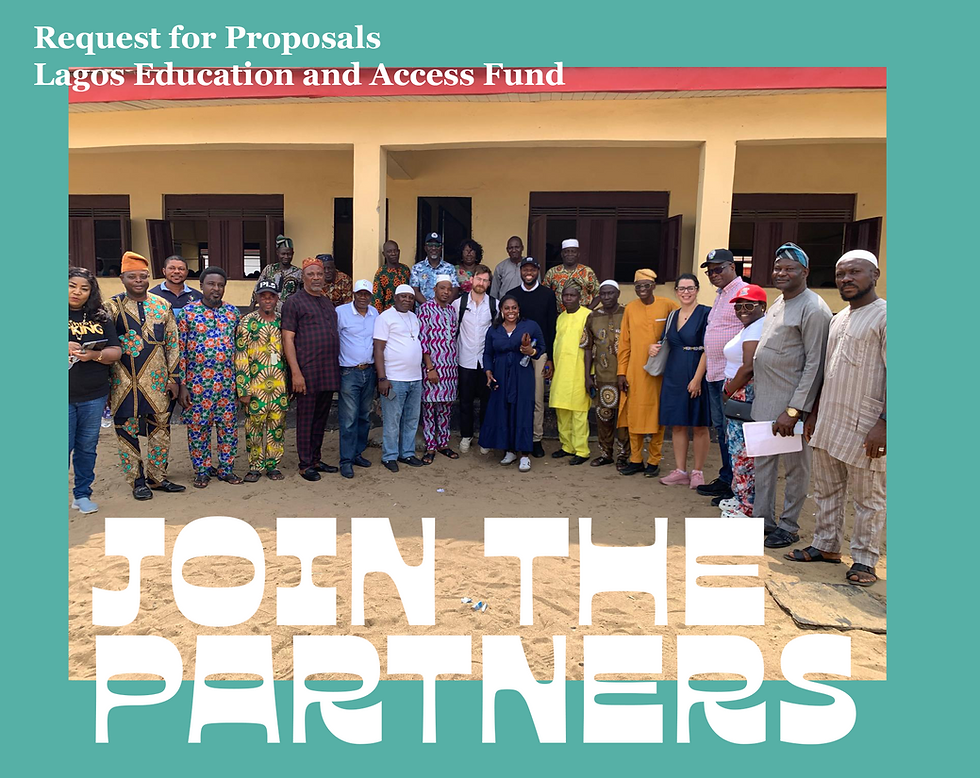Amel Karboul in WEF Agenda: The COVID-19 crisis presents an urgent imperative to upgrade education
- Dec 8, 2020
- 2 min read
Updated: Sep 26, 2024
Without decisive, bold action, the global learning crisis will only worsen amid the social and economic challenges exacerbated by COVID-19. Addressing challenges to children’s education is urgent, but it’s not too late—leveraging tools already at our disposal, there is a massive opportunity for the global community to come together and improve the quality of education for millions.
In a recent op-ed for the World Economic Forum (WEF) Agenda, Education Outcomes Fund (EOF) CEO Dr. Amel Karboul shared how the COVID-19 crisis presents an opportunity to leverage outcomes funding to improve learning outcomes.
Speaking from her experience as a former government minister in Tunisia, Dr. Karboul recognized that governments around the world are now, more than ever, facing competing priorities for resources. “The COVID-19 pandemic has shone a light on the limitations of our most important institutions,” wrote Dr. Karboul. However, by bringing life as we know it to a halt, the pandemic has also provided time to pause and reflect, and Dr. Karboul is hopeful that this could be “the inspiration for new approaches…a chance to wipe the slate clean.”
Dr. Karboul explains how outcomes funding—which has already proven to be successful—can help governments looking to tackle social challenges on tight budgets. By building on early successes and implementing outcomes funding in education at scale, wrote Dr. Karboul, we can make a huge impact, delivering better education to more children globally:
“Broader environmental, social, and governance (ESG) investing currently stands at $30 trillion, of which the impact investment market is worth nearly $1 trillion. If we can shift even a fraction of that funding towards outcomes-based education programs, it could transform not only individual lives but entire countries.”
Dr. Karboul went on to explain how EOF’s model, which “brings the public and private sectors together to support long-term, systemic impact—ultimately driving better outcomes for children around the world” has been game-changing for donors, governments, investors, and education organizations alike.
“No longer do funders pay for a set of activities and rigid programming, with limited evaluation of their impact. Instead, they define the outcomes they want to see, and only pay for the measurable social change that the interventions deliver.”
This type of funding mechanism can also facilitate innovation, writes Dr. Karboul, by giving providers the opportunity to try different approaches in response to ever-evolving circumstances.
Acknowledging that many challenges still lie ahead, Dr. Karboul concluded by calling upon readers to look to the future with a sense of hope and opportunity:
”Let’s think even bigger than simply recovering from the current crisis. Let’s reimagine how we can face any crisis in the future. With [EOF’s] recent move to the United Nations family, […] that’s exactly what we’re doing. We’re reimagining our approach to education funding on a global scale, seeking to improve the lives of 10 million children and young people around the world.”
You can read the full op-ed here.



Comments